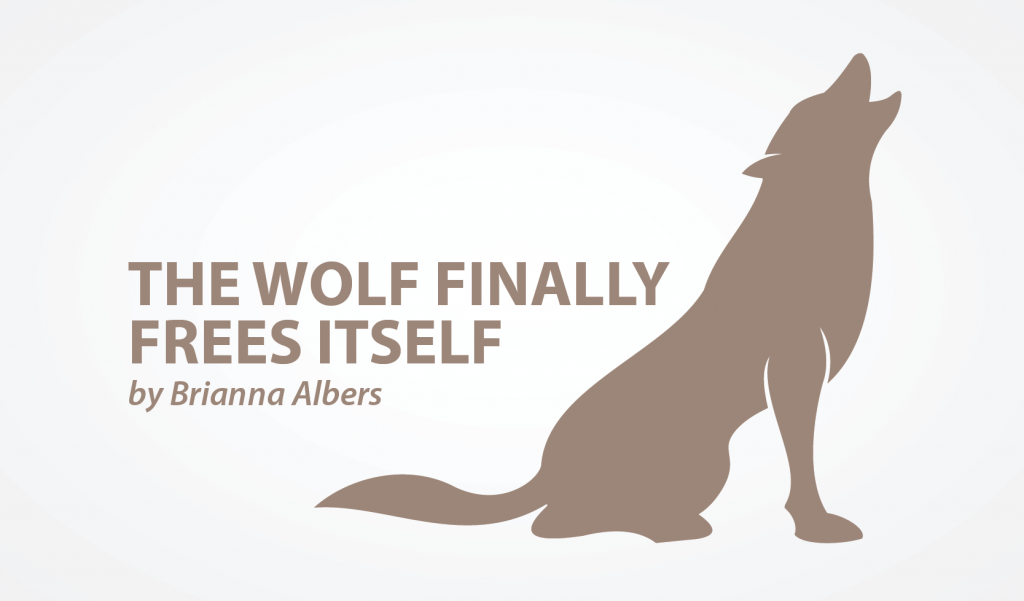Road Trips, Anxiety and Existing in the Public Sphere
Written by |

We made it home safely after a long road trip! And we’re all pretty much exhausted.
We’ve been on some pretty intense trips over the years, but this one might be our personal best: upwards of a thousand miles in less than 60 hours. That’s not even counting the hours spent in Chicago, the flat tire, and my “Critical Role” show in Indianapolis. All in all, it was a great trip, but I have a feeling it’s going to take us awhile to bounce back.
Our hotel in Indianapolis was about 20 minutes away from the theater, so when my dad picked me up at about 1:30 a.m., I was ready to crawl into bed. Between the traffic in Chicago, the flat tire somewhere around the Indiana border, and a sudden, paralyzing fear that we wouldn’t reach Indianapolis on time, I was exhausted. I could barely piece a coherent sentence together. But I was still able to hold a conversation, probably because of my residual anxiety — sometimes it feels like I can do anything with all that adrenaline roiling in my gut. At one point, I mentioned how different I feel, how disabled, when I’m out with friends. And it was then I knew exactly what this week’s column would be about.
I’ve always struggled with crowds, and when you combine sensory overwhelm — dodging people who are unaware of their bodies, the power they possess in small, cramped spaces, sorting through my own sluggish thoughts — with social anxiety, I shut down. People try to talk to me, but all I can do is nod and shake my head. I’m not strong enough to project my voice, so whatever I do manage to get out is usually lost in the haze of conversation and laughter. Sometimes people ask me to repeat myself, and I do and it’s awful; sometimes they just pretend they understood me, which is equally as awful in a different way. If I’m lucky (and I very rarely am, which only makes me treasure the people who know me that well), they know I can’t talk when it’s loud, and give me a squeeze of the elbow or a pat on the head to silently excuse me from the conversation.
This isn’t a problem unique to SMA patients. A lot of it has to do with social anxiety, the way my brain is wired: its constant flipping between fight and flight. But I think it has a unique effect on us, because so much of who we are in a public sphere comes down to our disabilities. Many of us are in wheelchairs, and thus are expected to be “slow,” or “not all there.” I’ve fought this able-ism my entire life. I don’t want to be seen “that way,” because the way people see me affects how I see myself. My anxiety further complicates things by introducing a self-fulfilling prophecy: If people assume I’m slow, part of that assumption will rub off on me, and my own fear of appearing slow will inevitably result in brain fog, stuttering, me repeating myself in an attempt to make conversation (wow; or that’s cool; or, in the case of this weekend, I’m so tired, are you tired, it’s been a long day).
The worst part, though, is that I’m not like this at home. I can spend hours watching TV with someone, playing “Mass Effect” or talking about “The 100” and not have a single issue. And I know that. The next time my friends come over to play Dungeons & Dragons, I won’t struggle in the slightest. But the moment I start feeling claustrophobic, or the minute my voice isn’t loud enough, the anxiety will be there, lapping at my legs, threatening to pull me under. Even now, writing this, I can feel myself getting tense. My breaths coming short and fast. My mind going terrifyingly blank, numbingly white.
I’m lucky enough to have friends who understand — even if we’ve never had the conversation — and you wouldn’t believe how hard it is to talk about anxiety, especially when it relates to disability. It’s not I have trouble functioning in a crowd, so much as it is I can’t talk in a crowd because my voice is too weak or, I always feel like people are staring at me, even when they’re not. These friends seem to know, and I’m grateful for that. But it doesn’t make things any easier. It doesn’t lessen my guilt and embarrassment, as much as I wish it did.
***
Note: SMA News Today is strictly a news and information website about the disease. It does not provide medical advice, diagnosis, or treatment. This content is not intended to be a substitute for professional medical advice, diagnosis, or treatment. Always seek the advice of your physician or other qualified health provider with any questions you may have regarding a medical condition. Never disregard professional medical advice or delay in seeking it because of something you have read on this website. The opinions expressed in this column are not those of SMA News Today, or its parent company, Bionews Services, and are intended to spark discussion about issues pertaining to spinal muscular atrophy.








Leave a comment
Fill in the required fields to post. Your email address will not be published.